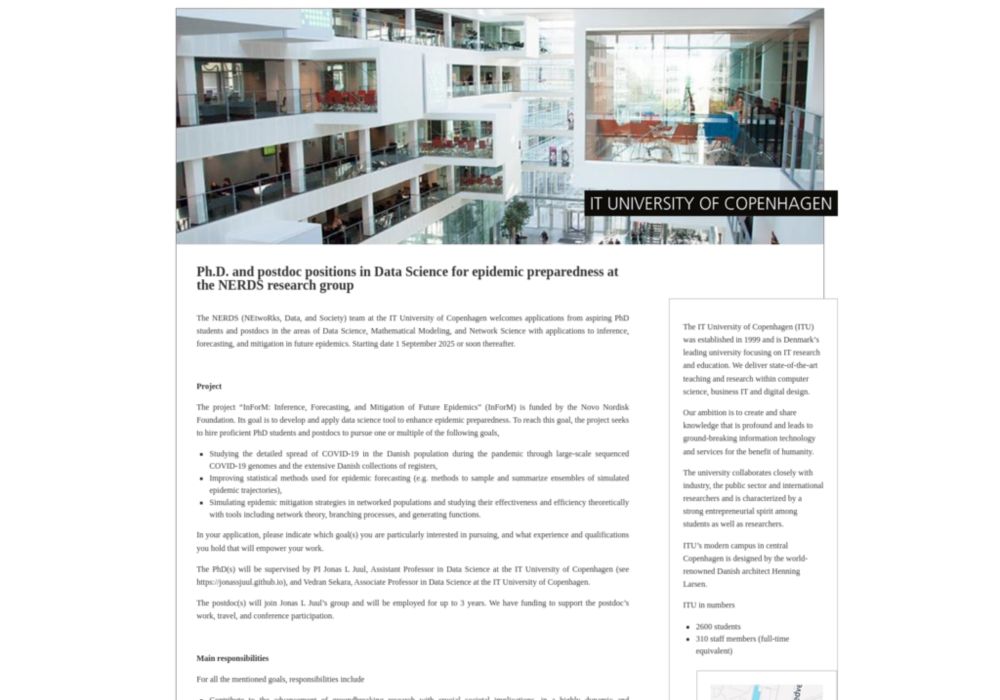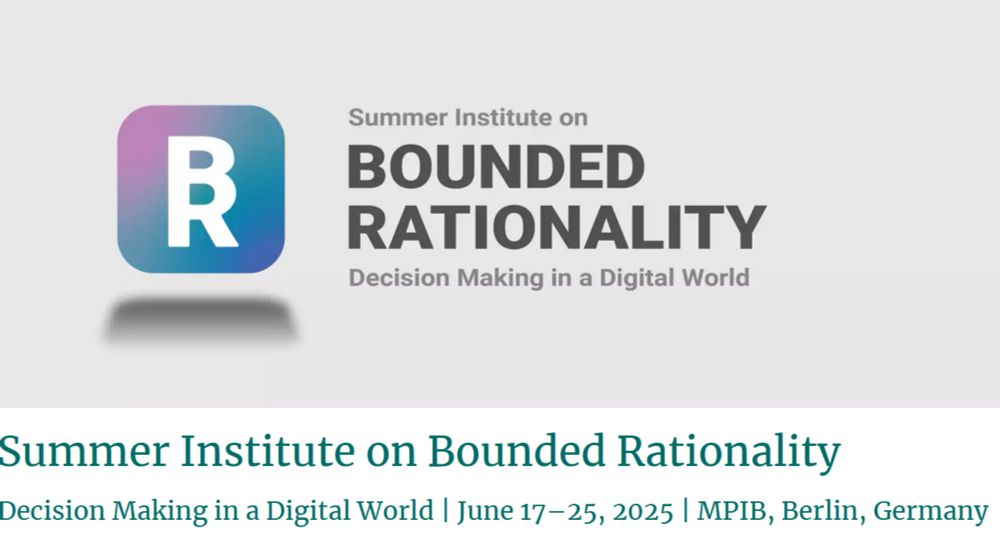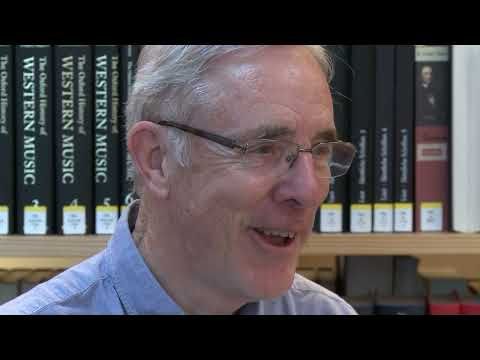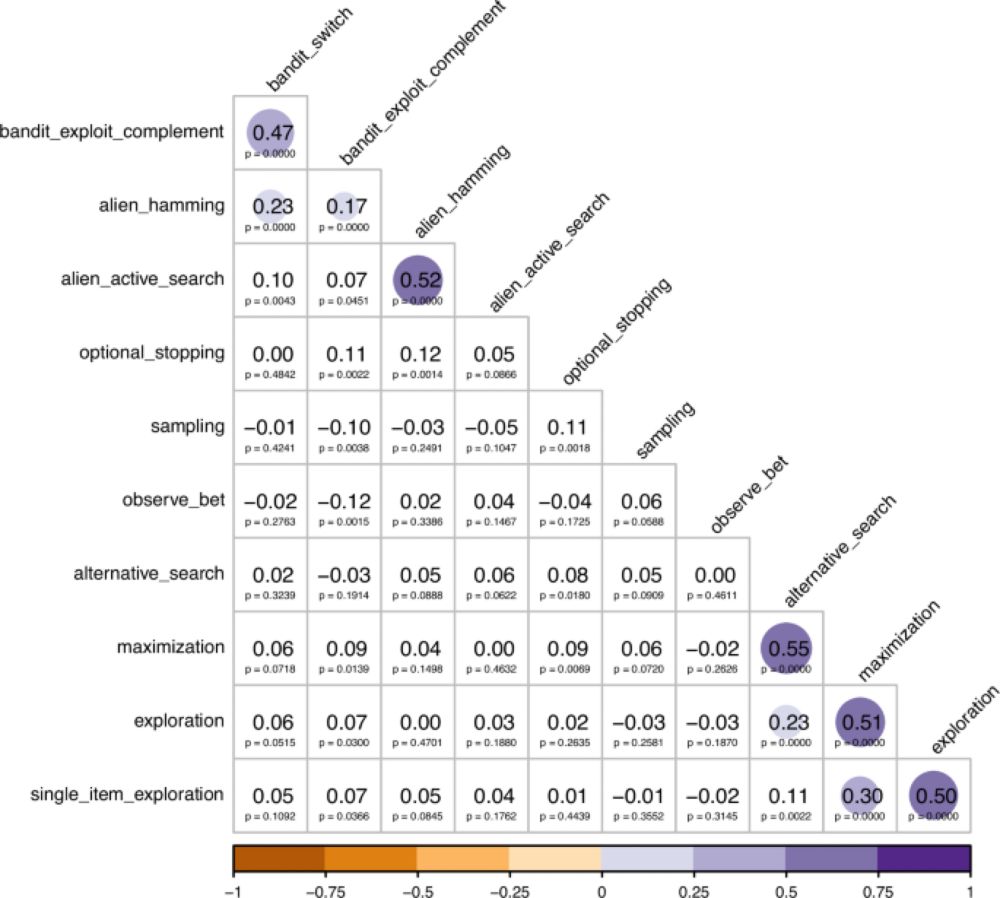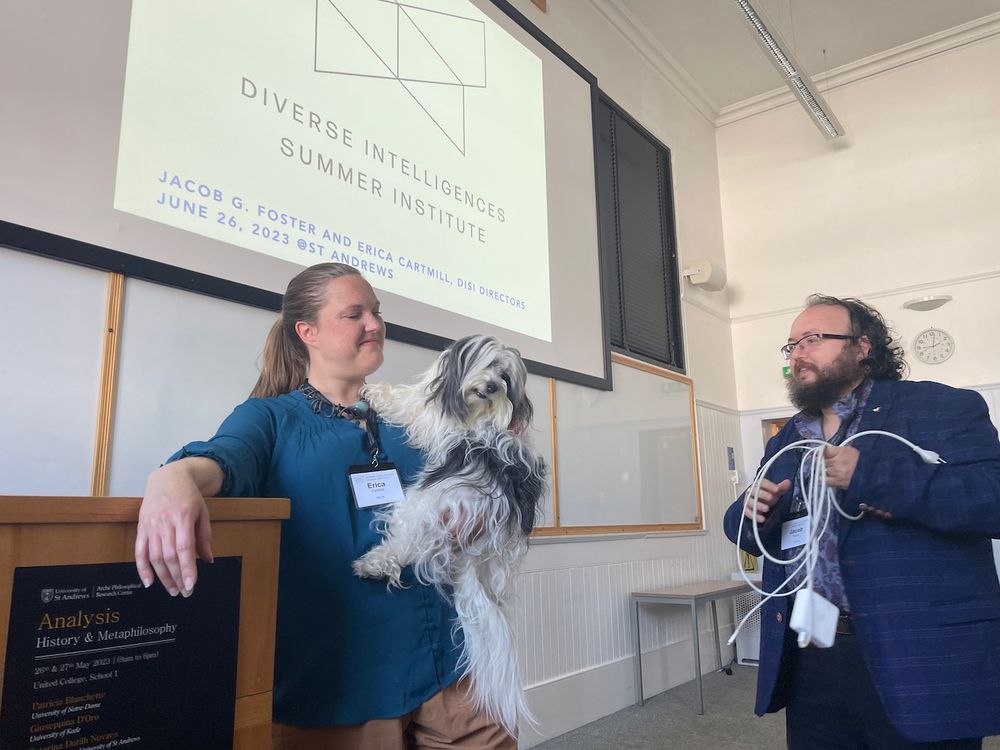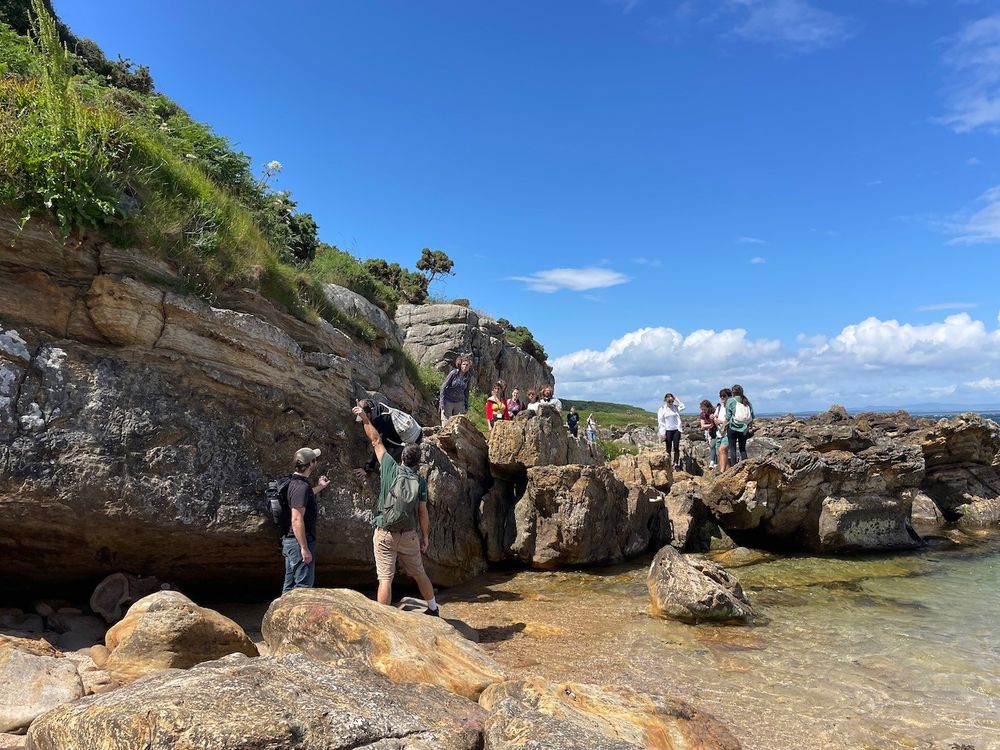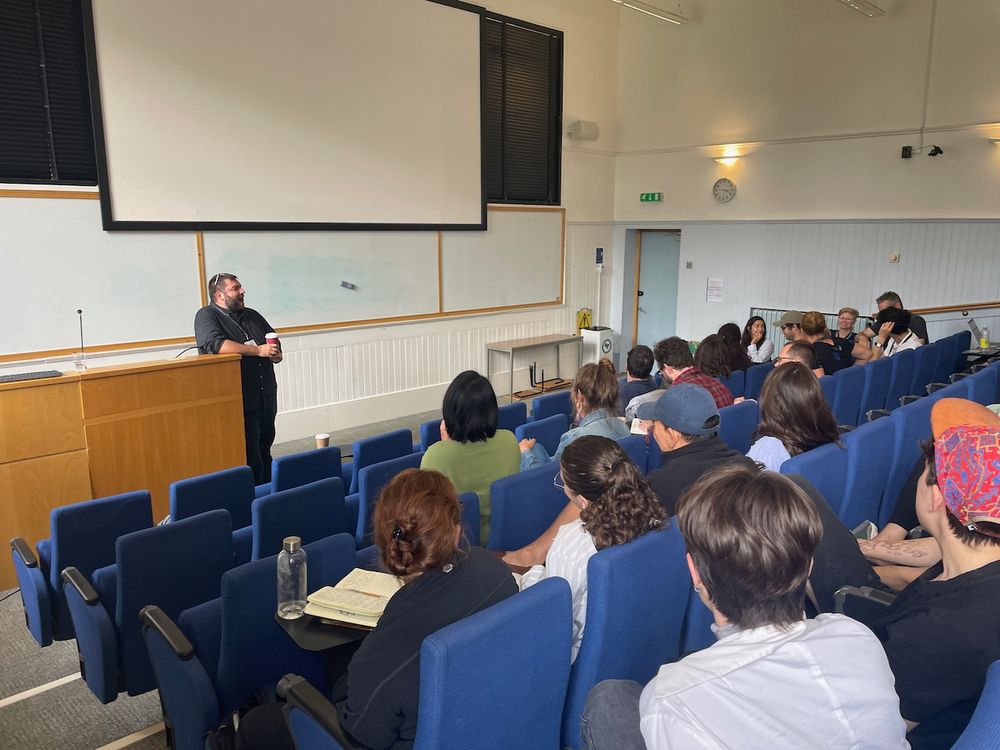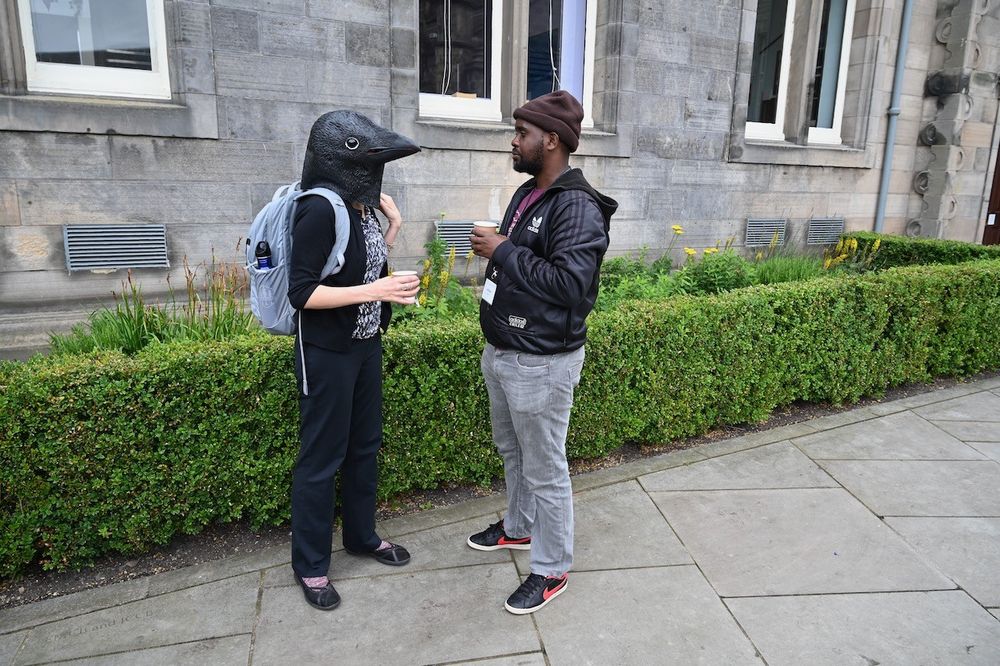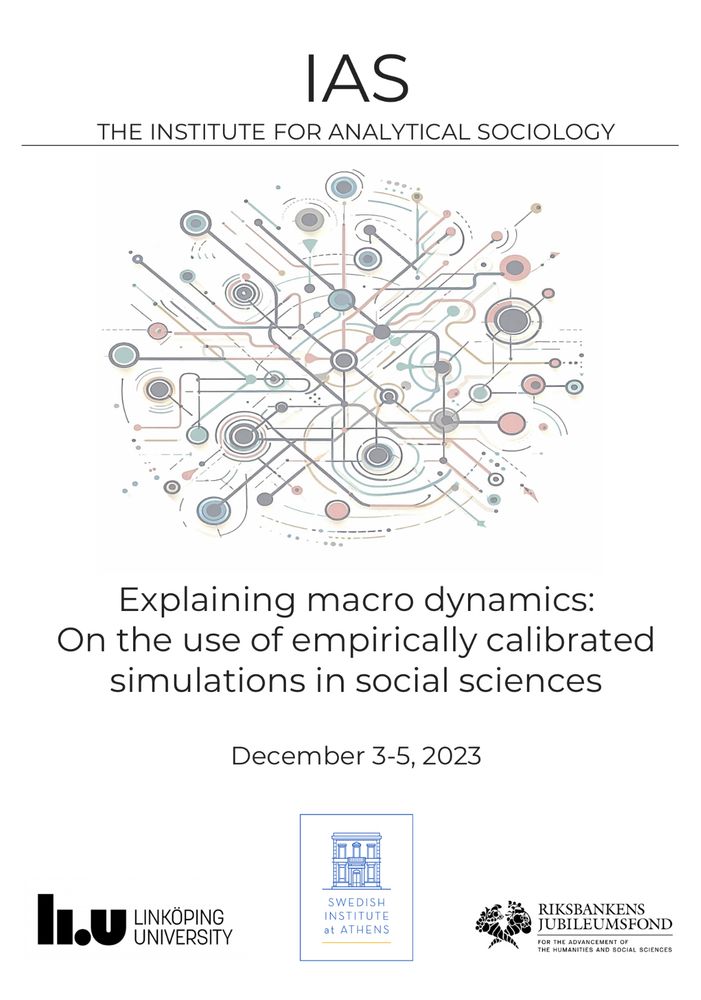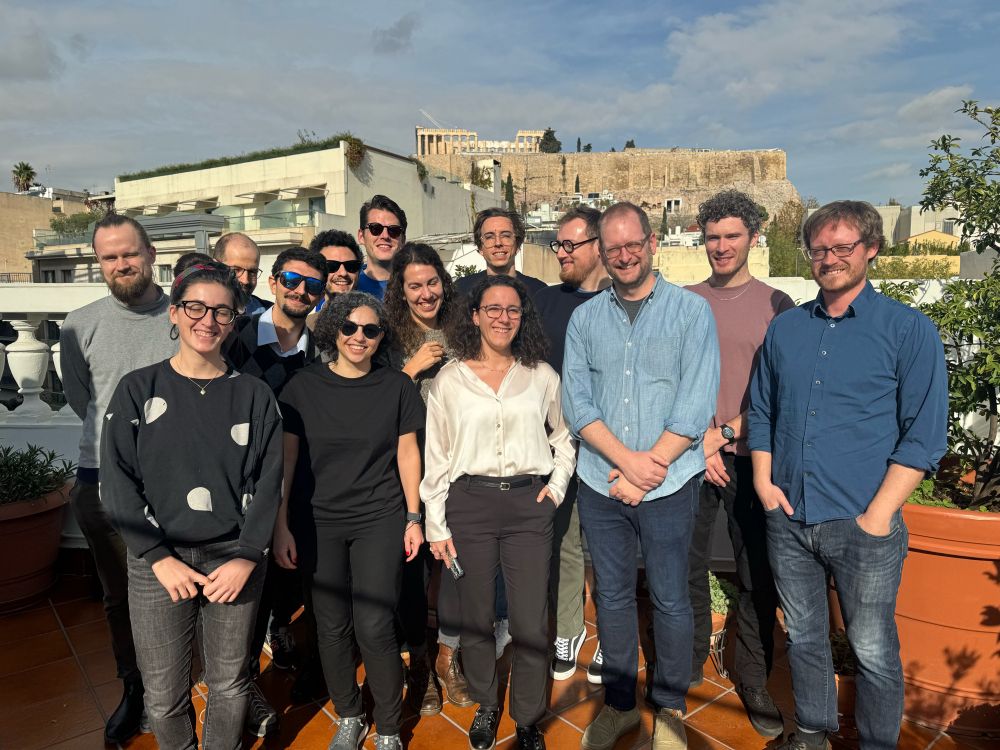The academic conditions in Denmark are excellent and the salary for postdoctoral researchers is quite competitive. You can also work remotely. Reach out in case you are interested and share this message if you know people who might be!
01.12.2025 08:29 — 👍 0 🔁 0 💬 0 📌 0
My group also explores: recommender systems/ranking algorithms, collective/organizational decisions and computational social choice (i.e. voting strategies), crowdsourcing and the wisdom of the crowds and human-AI decision making.
01.12.2025 08:29 — 👍 1 🔁 0 💬 1 📌 0
Depending on the skill set, you can work on expanding our theoretical frameworks, designing new online studies on social dynamics, simulating the behavior of decision strategies, and cognitive modelling using data from past experiments.
01.12.2025 08:29 — 👍 0 🔁 0 💬 1 📌 0
I am hiring a postdoc for a DFF-funded project on social influence, and the decision processes that fuel rich-get-richer dynamics in the online/offline world. The position is for up to a year, competitive Danish salary, remote work possible. Interested or know somebody? DM me or share!
01.12.2025 08:29 — 👍 16 🔁 22 💬 1 📌 0

Research Fellowships
Each year, IAST invites applications for post-doctoral Research Fellowships, which offer candidates an opportunity to devote themselves full-time to their research at the start of their careers. Fello...
It is the time of the year when I tell you about my favorite post-doc ever 👇 Unless you are allergic to the French, this one sits up there with the Nuffield postdoc (life style, productivity, interdisciplinary stimulation). Share widely! Apply! #poliscky
www.iast.fr/research-fel...
18.09.2025 15:11 — 👍 40 🔁 23 💬 0 📌 1
As some of you guessed, the two models are statistically indistinguishable. The answer is Model 1, but there was no way to tell from the data. I was very surprised when I first saw this. Here we show that this confounding of heterogeneity and reinforcement is general: www.pnas.org/doi/10.1073/...
24.06.2025 09:44 — 👍 11 🔁 11 💬 0 📌 0

Norrköping campus at sunset
We are hiring postdocs in Computational Social Science
📍SweCSS, Norrköping, Sweden
⏰Deadline June 3
🔗https://liu.se/en/work-at-liu/vacancies/26854
Please apply // help us spread the word
13.05.2025 12:47 — 👍 105 🔁 76 💬 2 📌 1
👨🎤COSMOS strikes back🌠! This time in Tokyo 🇯🇵 with a fantastic new program designed to teach computational modeling of social phenomena. As always, it's free to attend & we will offer travel stipends to ensure diverse attendance. For details visit 👉 cosmossummerschool.github.io/application/ pls share🙏
12.03.2025 12:54 — 👍 21 🔁 10 💬 0 📌 1
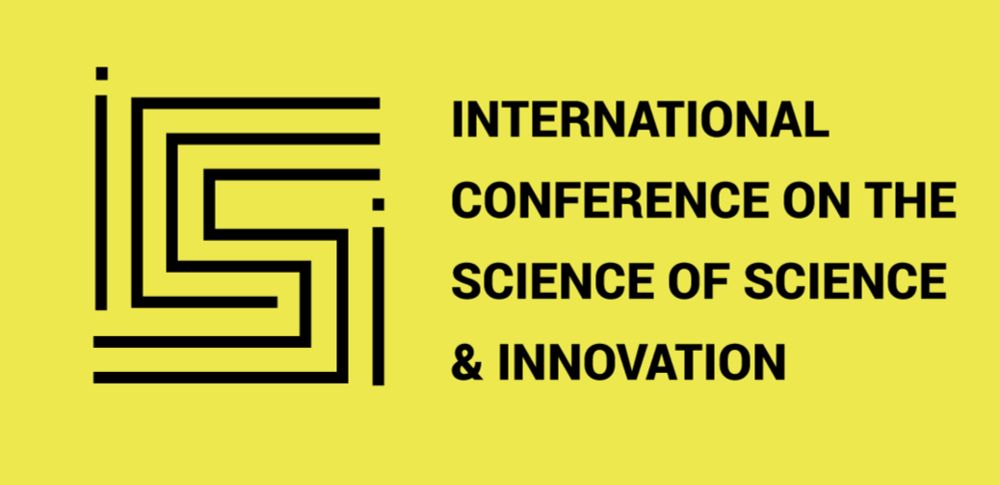
Call for Abstracts — International Conference on the Science of Science and Innovation
The call for abstracts of the International Conference on the Science of Science and Innovation is now open (www.icssi.org/guidelines, submission link coming soon)!
Submit your abstracts until the 14th of March, and join us in Copenhagen from the 16th to the 18th of June! Repost without qualms!
31.01.2025 17:11 — 👍 4 🔁 5 💬 0 📌 0
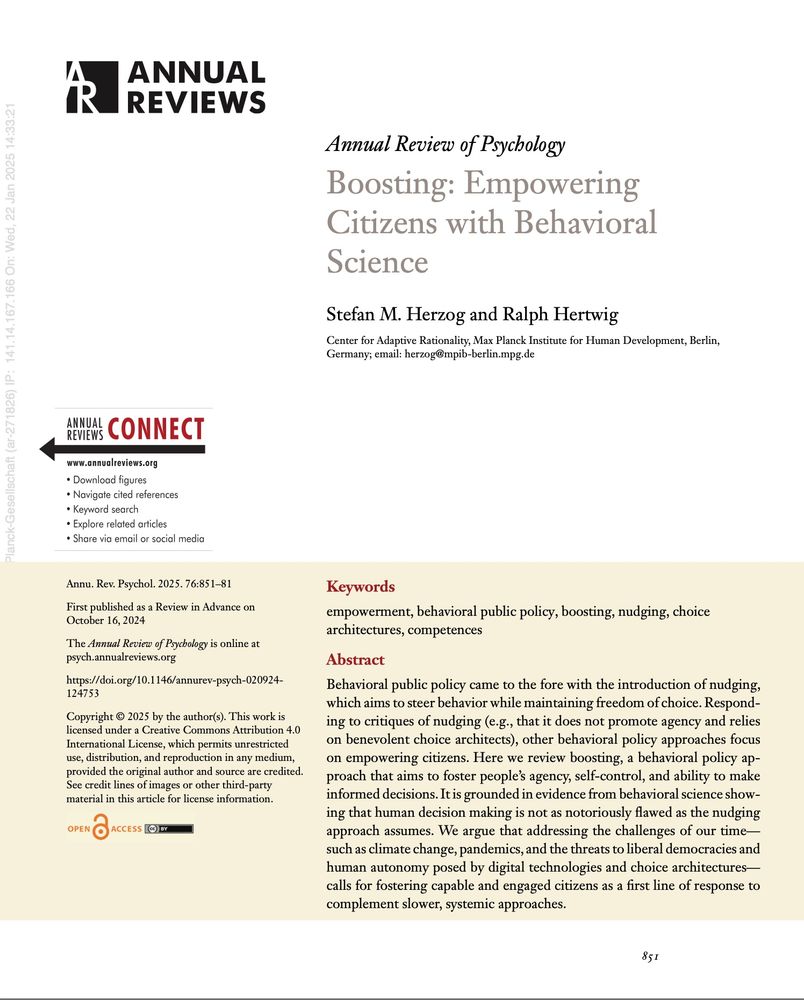
The image is the cover page of an article from the "Annual Review of Psychology" titled "Boosting: Empowering Citizens with Behavioral Science" by Stefan M. Herzog and Ralph Hertwig. It features a brief abstract, keywords, and publication details. The abstract outlines the concept of "boosting" as a behavioral public policy that emphasizes empowering individuals to make informed decisions, in contrast to "nudging," which subtly steers behavior. The abstract reads:
Behavioral public policy came to the fore with the introduction of nudging, which aims to steer behavior while maintaining freedom of choice. Responding to critiques of nudging (e.g., that it does not promote agency and relies on benevolent choice architects), other behavioral policy approaches focus on empowering citizens. Here we review boosting, a behavioral policy approach that aims to foster people's agency, self-control, and ability to make informed decisions. It is grounded in evidence from behavioral science showing that human decision making is not as notoriously flawed as the nudging approach assumes. We argue that addressing the challenges of our time—such as climate change, pandemics, and the threats to liberal democracies and human autonomy posed by digital technologies and choice architectures—calls for fostering capable and engaged citizens as a first line of response to complement slower, systemic approaches.
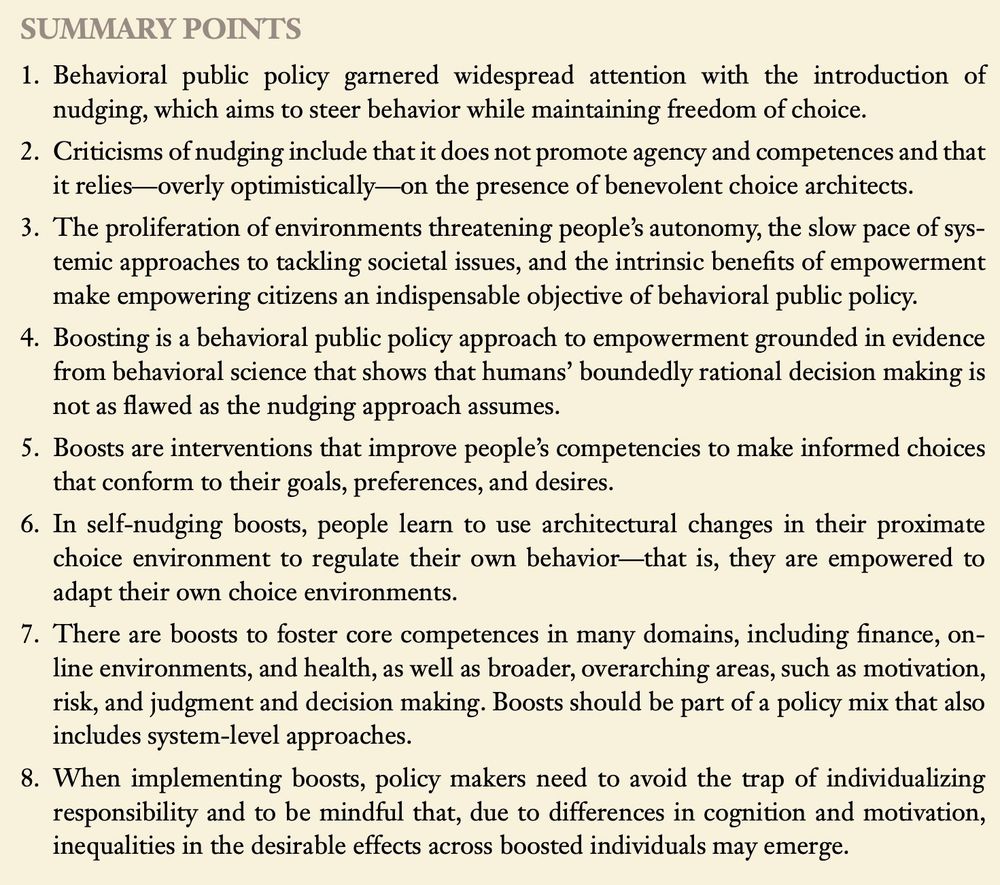
List with summary points:
1. Behavioral public policy garnered widespread attention with the introduction of nudging, which aims to steer behavior while maintaining freedom of choice.
2. Criticisms of nudging include that it does not promote agency and competences and that it relies—overly optimistically—on the presence of benevolent choice architects.
3. The proliferation of environments threatening people's autonomy, the slow pace of systemic approaches to tackling societal issues, and the intrinsic benefits of empowerment make empowering citizens an indispensable objective of behavioral public policy.
4. Boosting is a behavioral public policy approach to empowerment grounded in evidence from behavioral science that shows that humans’ boundedly rational decision making is not as flawed as the nudging approach assumes.
5. Boosts are interventions that improve people's competencies to make informed choices that conform to their goals, preferences, and desires.
6. In self-nudging boosts, people learn to use architectural changes in their proximate choice environment to regulate their own behavior—that is, they are empowered to adapt their own choice environments.
7. There are boosts to foster core competences in many domains, including finance, online environments, and health, as well as broader, overarching areas, such as motivation, risk, and judgment and decision making. Boosts should be part of a policy mix that also includes system-level approaches.
8. When implementing boosts, policy makers need to avoid the trap of individualizing responsibility and to be mindful that, due to differences in cognition and motivation, inequalities in the desirable effects across boosted individuals may emerge.
🌟🧠💪📝
#BOOSTING: Empowering citizens with behavioral science
New, freely available paper in Annual Review of Psychology.
PDF: tinyurl.com/boosting2025
For more: scienceofboosting.org
@arc-mpib.bsky.social @mpib-berlin.bsky.social
@annualreviews.bsky.social
#policy #behavioralscience
1/ 🧵👇
23.01.2025 10:54 — 👍 93 🔁 41 💬 2 📌 5
YouTube video by Max Planck Institute for Human Development
Talking about decisions with Robin Hogarth
In 2015, Astrid Kause, Perke Jacobs, and I had the chance to interview Robin Hogarth. Robin‘s passing earlier this year made it urgent for us to revisit the interview and share it with you: youtu.be/RWYe5jYWPYI. Robin was a giant of the JDM universe, and his thinking will be there with all of us.
18.12.2024 15:25 — 👍 6 🔁 1 💬 0 📌 0
Science of Science in Copenhagen, June 2025 #scisci
24.11.2024 05:09 — 👍 6 🔁 3 💬 0 📌 0
📢 Please repost 📢
Applications for the Toulouse Summer School in Quantitative Social Sciences (May 26 - Jun 20 2025) are now open.
Brochure and more info: www.tse-fr.eu/sites/defaul...
Application form (deadline, Dec 15 2024): www.tse-fr.eu/toulouse-sum...
15.11.2024 13:59 — 👍 59 🔁 60 💬 1 📌 3
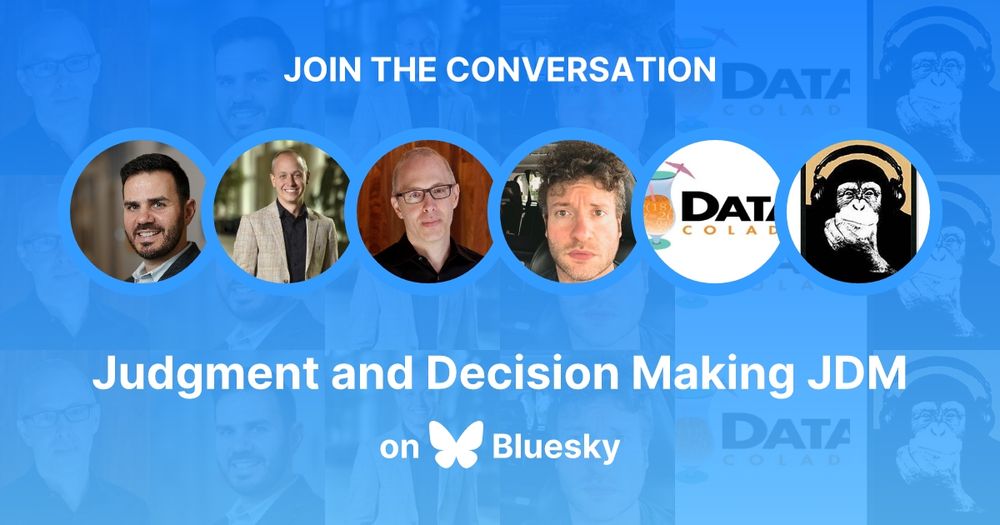
Judgment and Decision Making (JDM) starter pack
Happy to add you
go.bsky.app/8nDKmwG
14.10.2024 23:37 — 👍 132 🔁 53 💬 118 📌 11
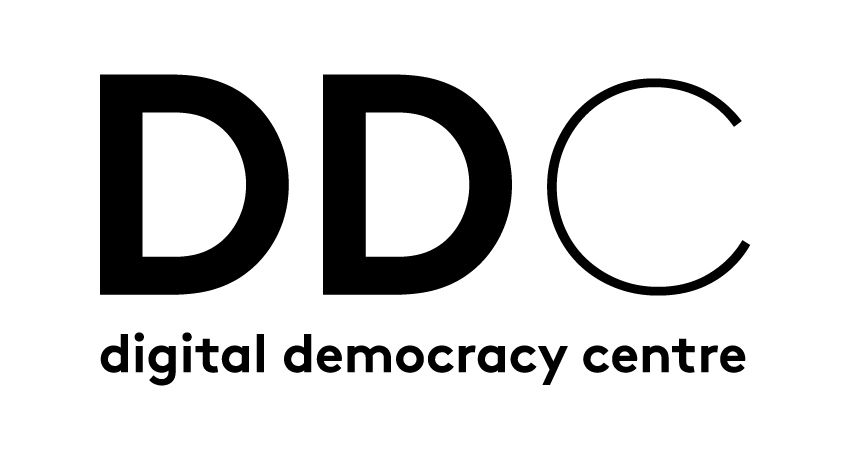
📢JOB ALERT: PostDoc opportunities at the DDC!
A broad open call with research opportunities in one of our four core research themes: lnkd.in/eQyjaztN
🗓Application date: Nov. 1
🗓Starting date: flexible
Read more and apply here: lnkd.in/ehPVDQBw
24.09.2024 08:32 — 👍 5 🔁 1 💬 0 📌 2
That was quite a serendipitous get together :). Enjoy the working group!
28.02.2024 22:16 — 👍 2 🔁 0 💬 0 📌 0
DIAS offers an outstanding research-focused environment to grow as an interdisciplinary scholar. Reach out if you need information about the institute and (academic) life in Denmark more broadly!
18.01.2024 10:43 — 👍 0 🔁 0 💬 0 📌 0
The Danish Institute of Advanced Study (DIAS) is hiring several tenure-track assistant professors across faculties at SDU. The relevant research areas include large scale behavioural data science, affective computing, human-centered AI and digital humanities (see www.sdu.dk/en/forskning...).
18.01.2024 10:42 — 👍 5 🔁 2 💬 1 📌 0
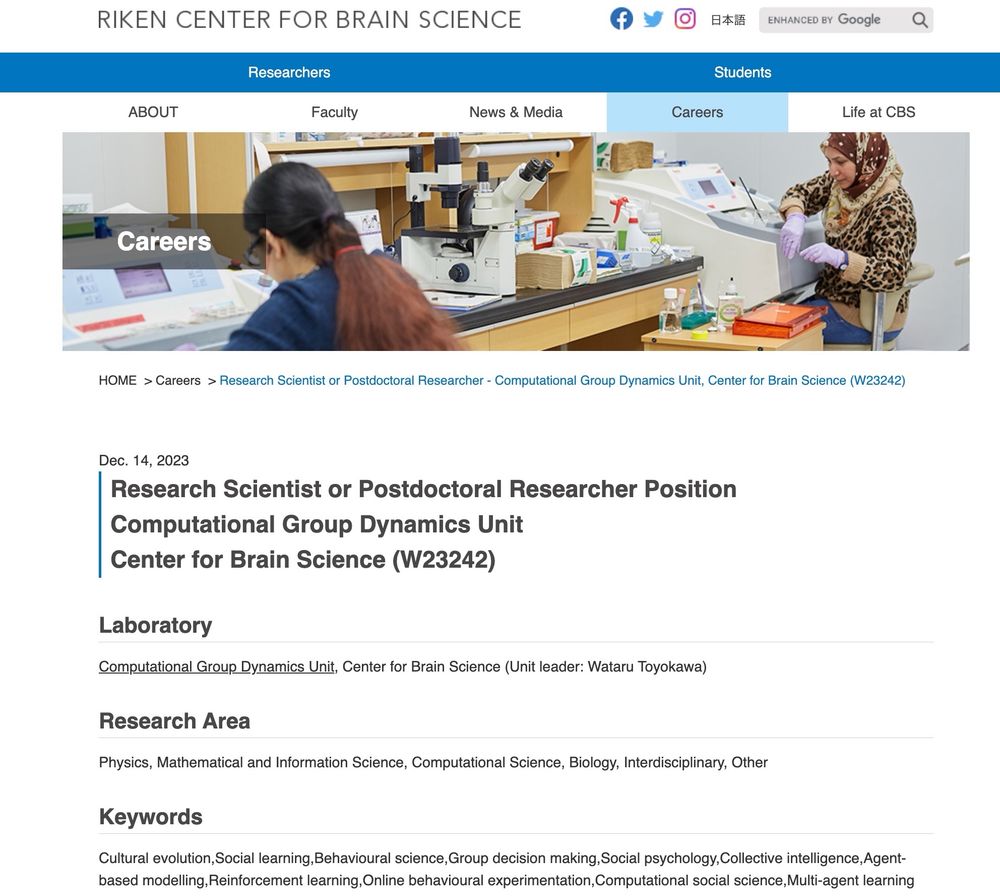
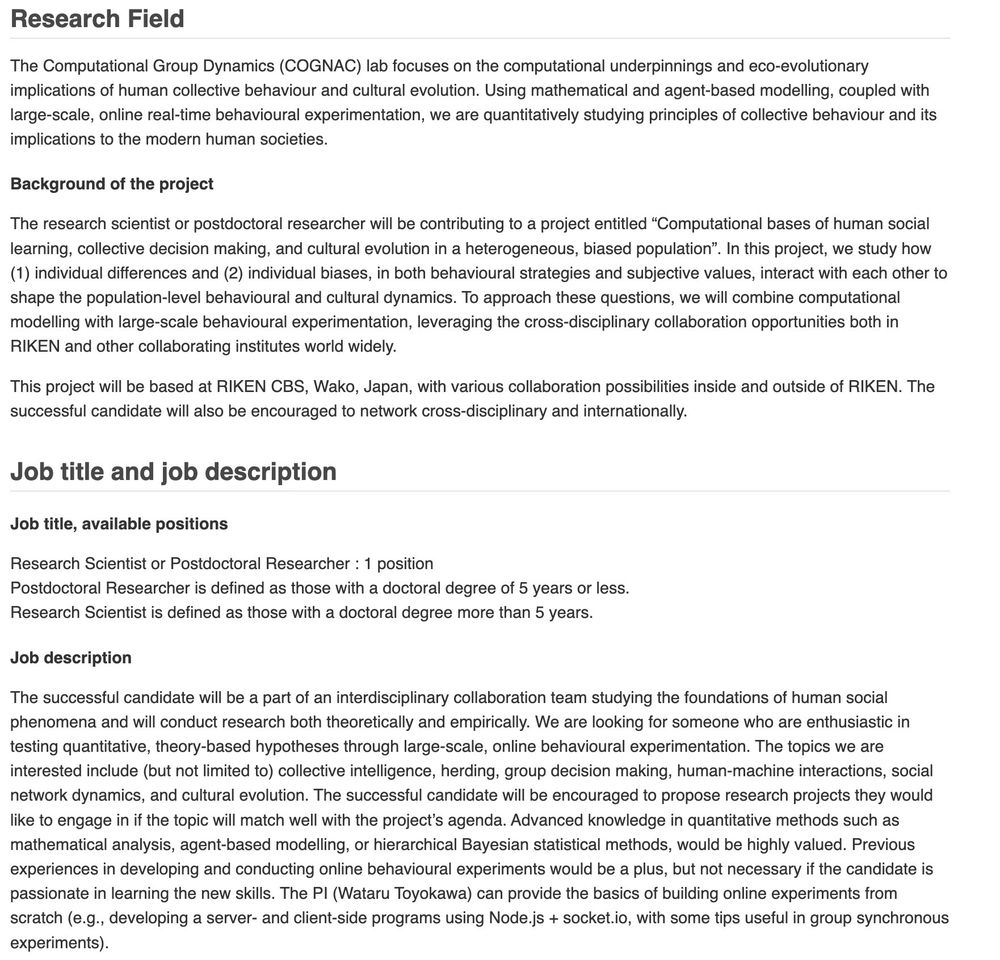
📣 We are hiring!! 📣
A postdoc position in the Computational Group Dynamics (COGNAC) lab, RIKEN CBS, Tokyo (Wako). Starting in April 2024 or soon after. Interested in experimenting human collective behaviour?
See full details 👉 cbs.riken.jp/en/careers/2...
Please Repost 🙏
04.01.2024 08:40 — 👍 8 🔁 15 💬 0 📌 1
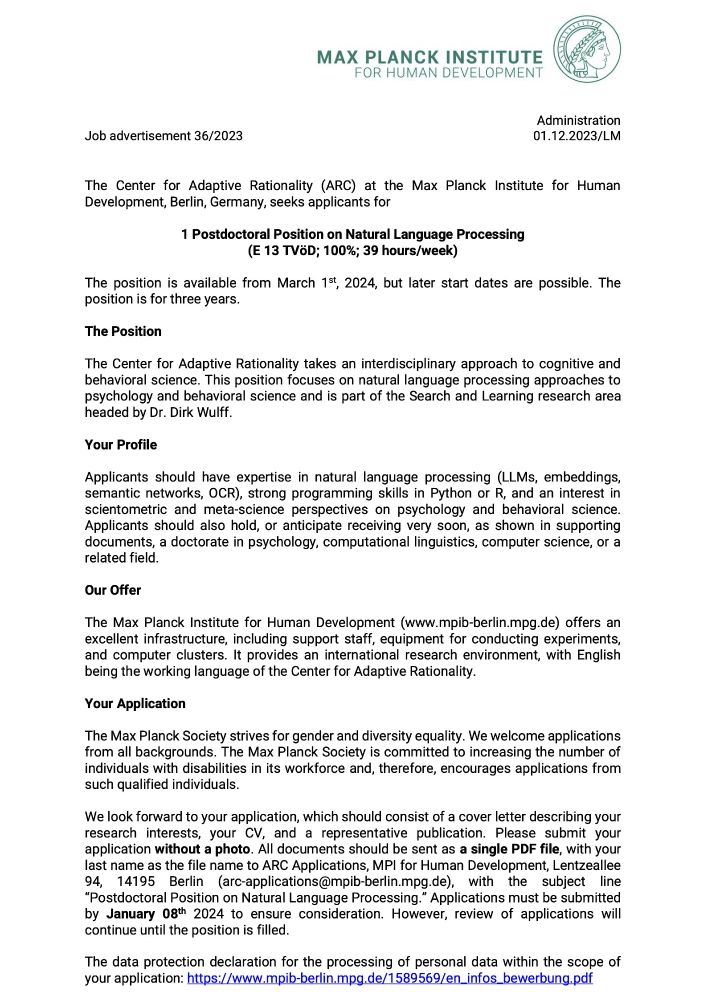
🚨3-year postdoc position🚨
Work with us at the MPI for Human Development on NLP projects at the intersection of psychology, AI, and scientometrics involving LLMs and the large-scale analysis of publication records.
Only a few more days to apply.
Thank you for sharing!
03.01.2024 16:08 — 👍 6 🔁 14 💬 0 📌 0
We (@zpid.bsky.social) are hiring 3 assistant profs (GER Jun-Prof) with tenure track and reduced teaching load in
-Science Acceptance,
-Psychological Metascience, and
-Big Data in Psychology
An attractive startup package is available. Questions? Feel free to contact me!
l.ead.me/zpid_w1_prof
21.11.2023 11:35 — 👍 53 🔁 55 💬 3 📌 2
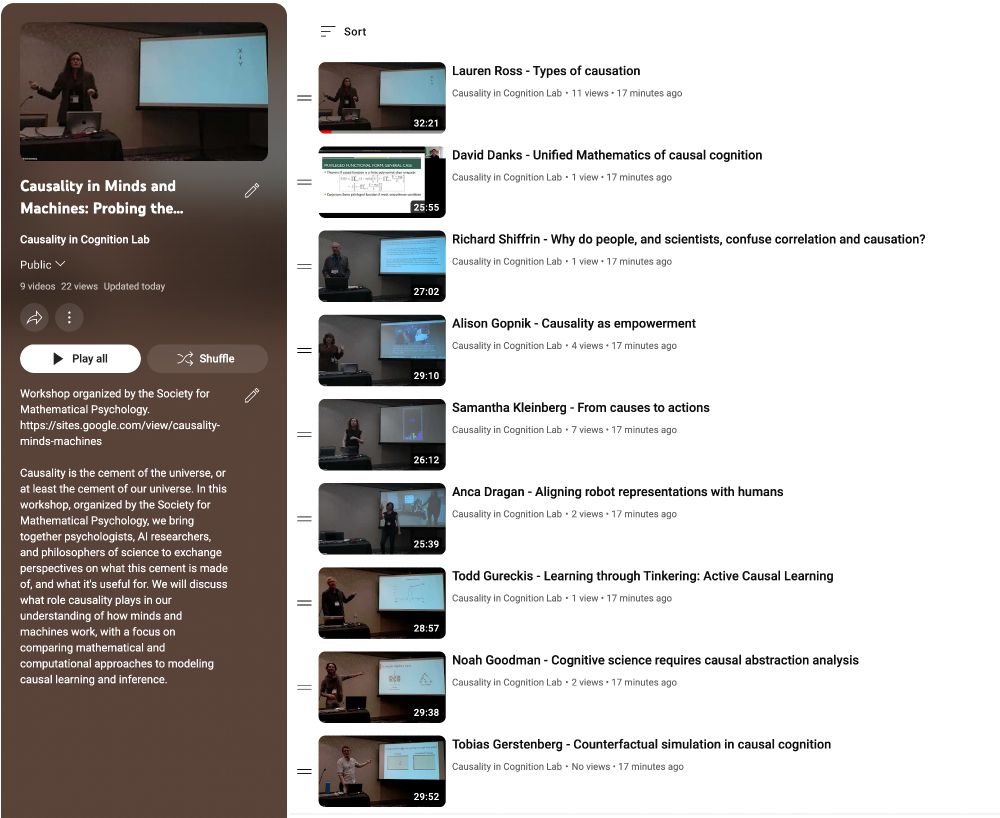
The talk recordings from the "Causality in Minds and Machines" workshop are live now.
sites.google.com/view/causali...
Thanks again to all the speakers and to the Society for Mathematical Psychology for sponsoring the workshop!
20.11.2023 18:59 — 👍 48 🔁 16 💬 0 📌 2
The 2024 Conference of the International Network of Analytical Sociologists will take place May 30–31 2024 in Leipzig, Germany.
Please visit our conference website www.sozphil.uni-leipzig.de/en/inas-conf...
The call for submissions is now open (until Feb. 16).
Happy to hear from you!
20.11.2023 12:07 — 👍 21 🔁 24 💬 0 📌 1
Institute for Advanced Study in Toulouse 🇫🇷
Interdisciplinary research hub aiming to understand fundamental determinants of human behaviour. #IASToulouse #FriendsOfIAST @tse-fr.eu
Cultural evolution, cultural adaptation, innovation
Postdoc at Aarhus University with @felixthehauskat.bsky.social
Sociologist working on elites, statistical programming and descriptive quantitative analysis. Roskilde University
Professor & Jean Monnet Chair in European Migration Law & Governance in Maastricht University|PI SoftEn ERC StG|WP lead @ensured.bsky.social|Joint Editor-in-Chief IJRL|Editorial Board MJECL| #asylum #migration #human rights|
Cognitive scientist interested in the processing, acquisition and evolution of language; statistical learning; computational modeling.
Lab website: https://csl-lab.psych.cornell.edu
Philosophy and Game Theory at Carnegie Mellon 🦚 Research the interface between philosophy, economics, and biology 💱 www.kevinzollman.com
Postdoc at the Centre for the Experimental-Philosophical Study of Discrimination (Aarhus University)
Psychology of resource management, infectious disease, and social hierarchy
Formerly: University of Michigan, Macalester College
The SNSF and Innosuisse jointly fund the BRIDGE funding programme. This enables researchers to quickly transform their results into products or services.
From reseach to innovation — www.bridge.ch
Part-time Assistant Professor at @mpc-eui.bsky.social and @eui-stg.bsky.social European University Institute. Migration studies, asylum, citizenship.
'Public Values in the Algorithmic Society' (AlgoSoc) is an interdisciplinary research program dedicated to a societal perspective on automated decision making
AlgoSoc.org
Stein Rokkan Chair in Comparative Politics, EUI. President-Elect, @epssnet.bsky.social. FBA, FRSA. Democracy, parties, elections, electoral systems etc. Live music. COYI
Professor of Sociology, University of Wuppertal
Behavioural ecologist interested in the social life of animals. Postdoc at the Universities of Bristol and Zurich. Soon returning to Germany to start a DFG-funded Emmy Noether group. Associate Editor in ProcB. My own views.
Political Behaviour Colloquium at @eui-eu.bsky.social | Sponsored by prof. @eliasdinas.bsky.social, co-organised by Lucía and Givi.
🔗 More: https://sites.google.com/site/euipolbehaviour/homepage?authuser=0
📧 Contact: PoliticalBehaviour.Colloquium@eui.eu
Cognitive diversity, development, & dynamics. https://cognitiveconstructionlab.com/
Psychologist studying cooperation, punishment, and norms.
Assistant professor at the Toulouse School of Economics and Institute for Advanced Study in Toulouse (IAST).
https://catherinemolho.github.io/
Postdoc @ Princeton AI Lab
Natural and Artificial Minds
Prev: PhD @ Brown, MIT FutureTech
Website: https://annatsv.github.io/
We Are Europe's Research Center Translating Data into Solutions for a Better World
PhD @UChicagoCS / BE in CS @Umich / ✨AI/NLP transparency and interpretability/📷🎨photography painting


